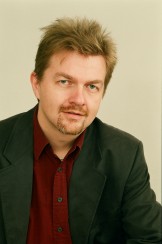 Can we ‘modify’ our brain structure? Until recently, the general consensus among neuroscientists was that tbe brain structure is relatively immutable after a critical period during early childhood. But new findings reveal that many aspects of the brain remain plastic even into adulthood.
Can we ‘modify’ our brain structure? Until recently, the general consensus among neuroscientists was that tbe brain structure is relatively immutable after a critical period during early childhood. But new findings reveal that many aspects of the brain remain plastic even into adulthood.
Neuroplasticity is a fascinating discovery referring to the ability of the brain and nervous system in all species to change structurally and functionally as a result of input from the environment. Naturally, this concept can explain much of why psychotherapy can be very effective to improve our mental wellbeing on a long-term basis, but it also has consequences the other way round:
German neuroscientists found out that cortical brain maps are shrinking and the sense of touch is waning when brain regions are not used for some time. Of professional musicians and braille readers we know that a more frequent and intense use of the hands can result in an astounding improvement of sensorimotor abilities. The representation of the hands on the “body map” of the brain is increased by training – but the process also works in reverse, as the neuroscience research group found.
If a hand – for example due to a broken arm – is not used for a while, its representation is reduced in the brain its sense of touch as well. With the affected hand, subjects took two needle points as a single one, even though they could clearly feel that there were two peaks with their good hand. However, these effects are also reversible: a few weeks after the plaster was took off, the sense of touch and the activity in the somatosensory cortex were back at the previous level. This leads to interesting hypotheses regarding the necessity of stimulation and an extent of challenge in our lives to keep our brains functional, maybe even to keep up our mental health in general.
Source: Current Biology, “Immobilization Impairs Tactile Perception and Shrinks Somatosensory Cortical Maps” (doi: 10.1016/j.cub.2009.03.065)


